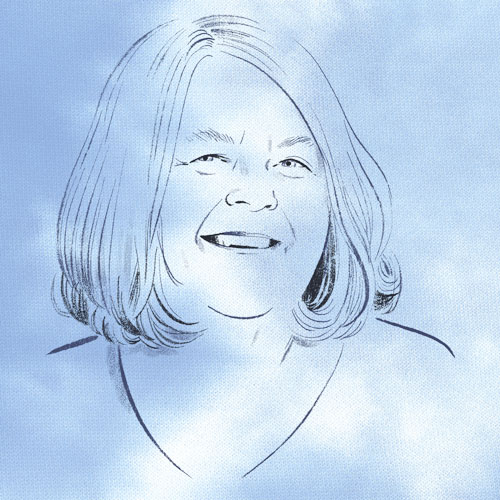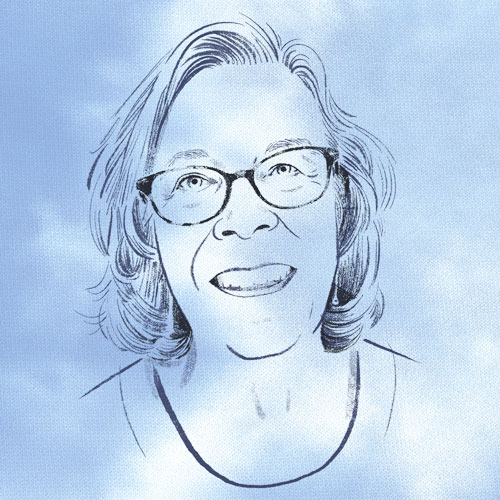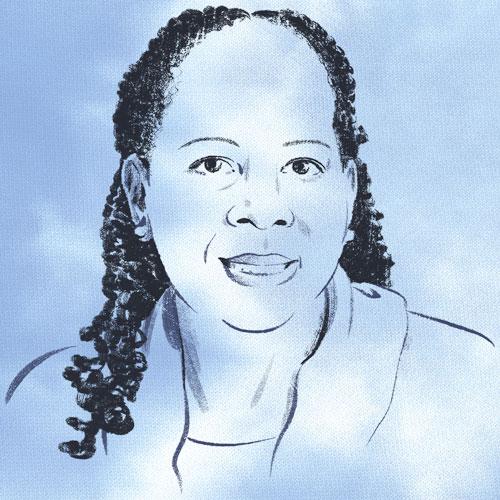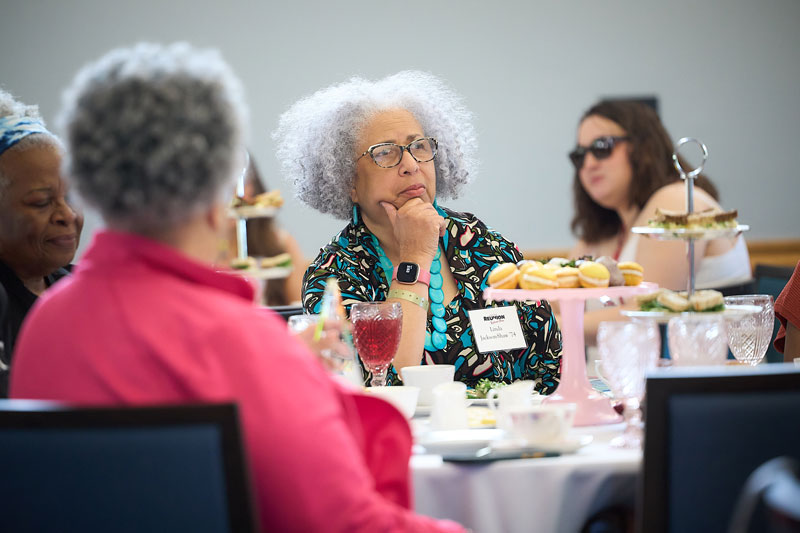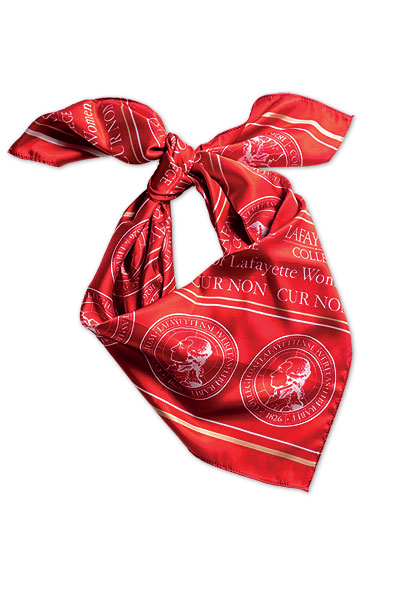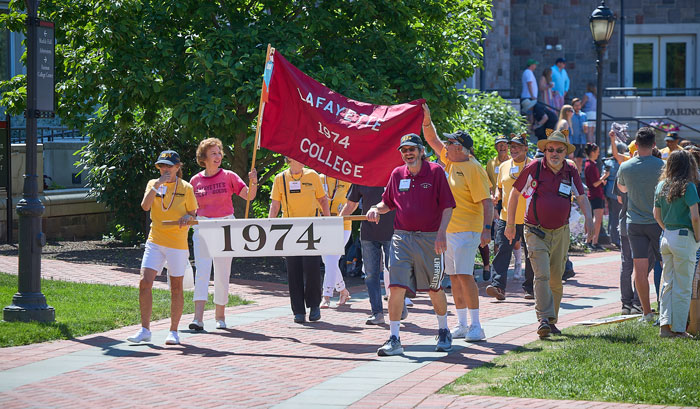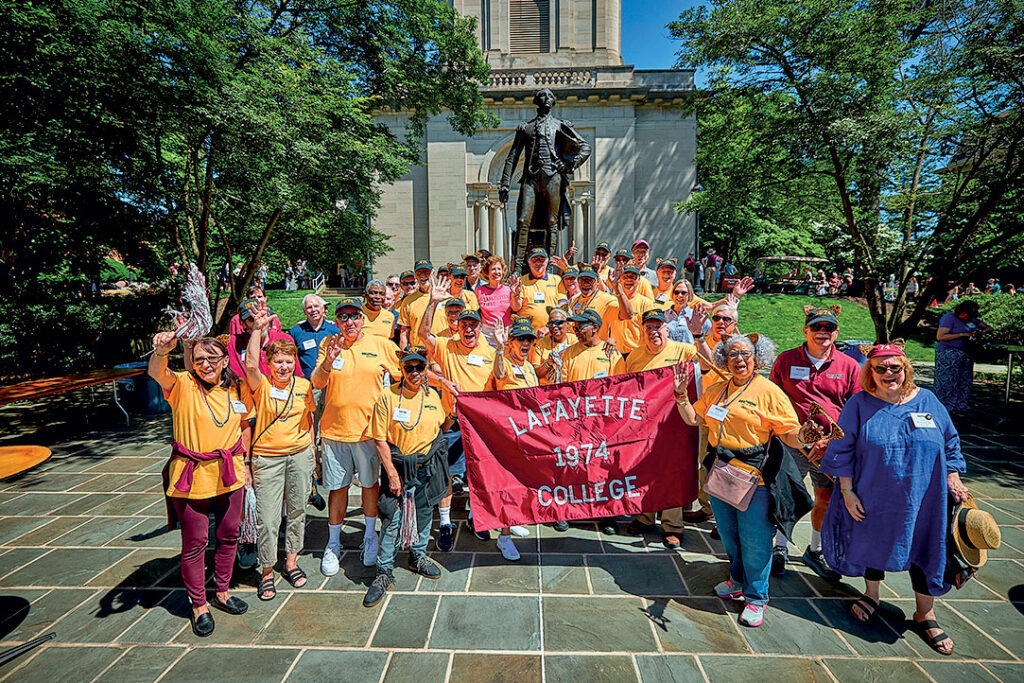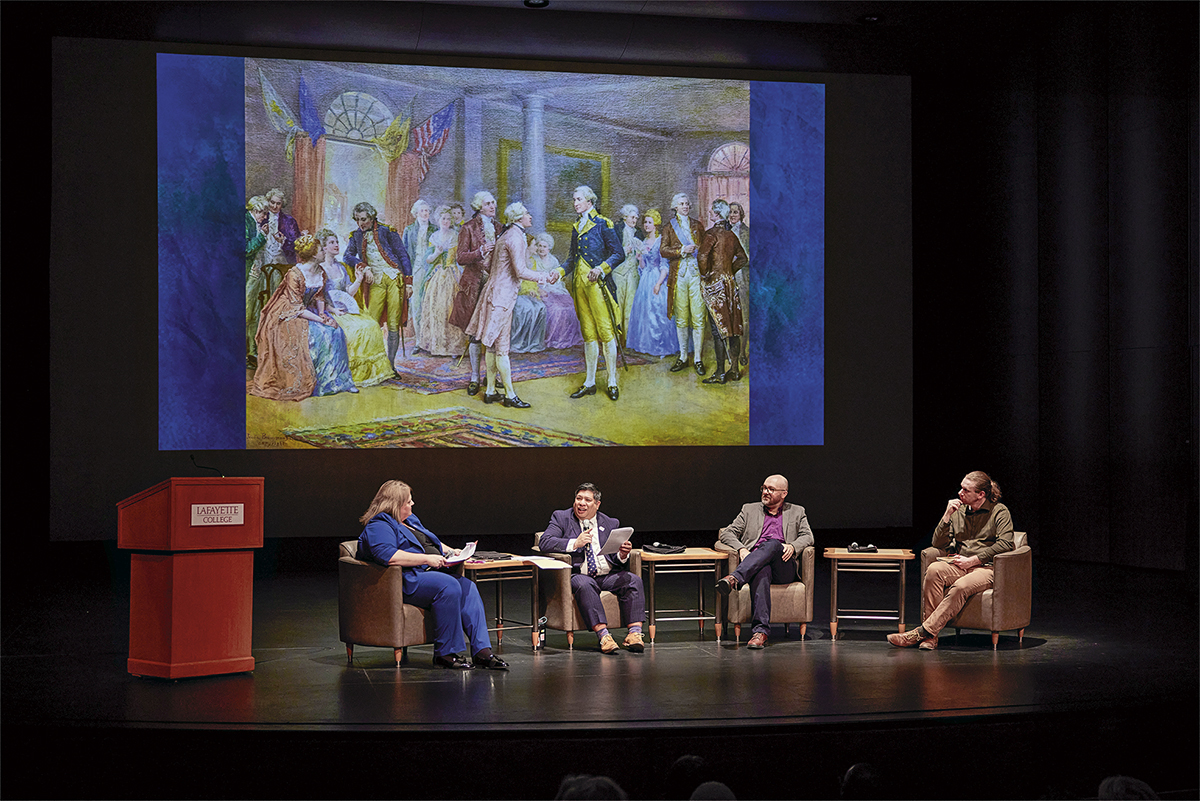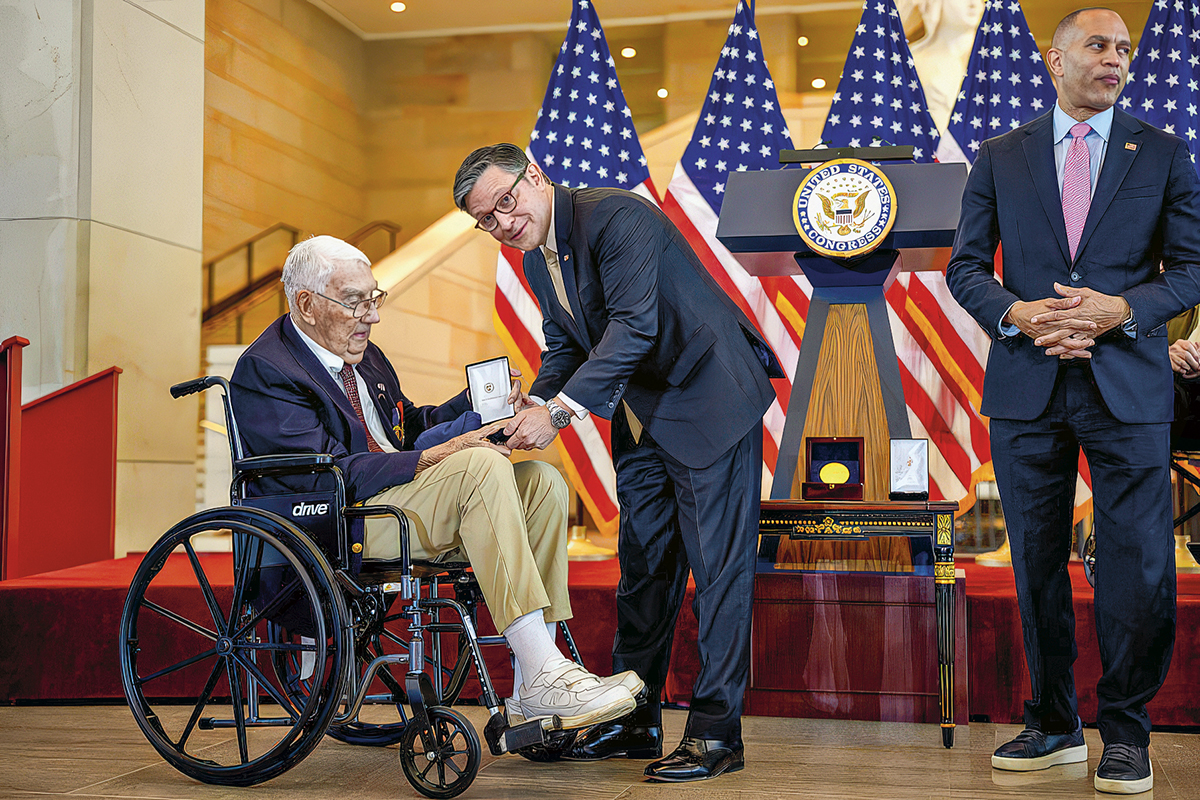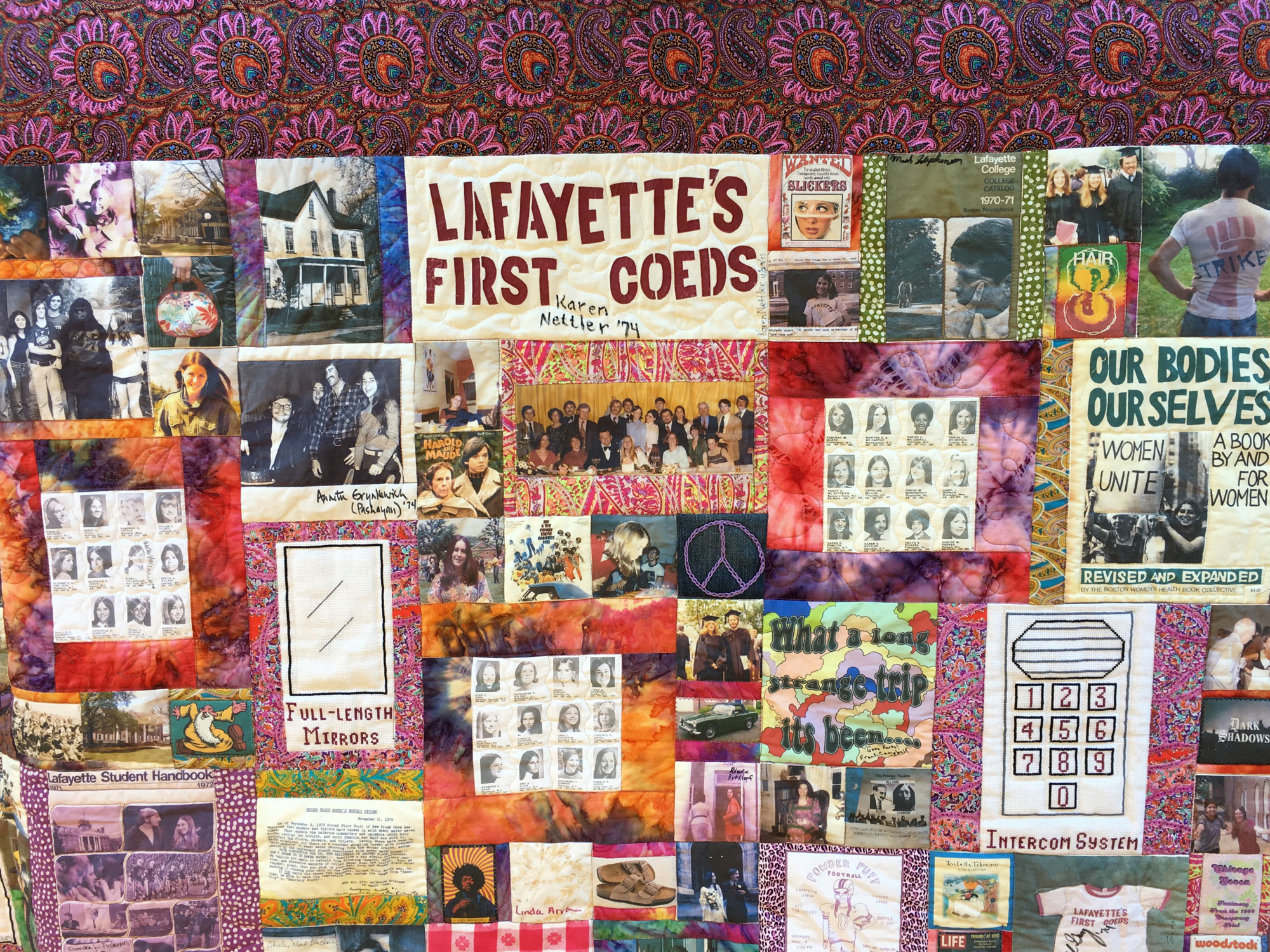
The First Women of Lafayette Commemorative Quilt, which was designed by Liza Roos Prior Lucy ’74 with memorabilia and images from peers, is stored at Skillman Library.
Of the First Order
In celebration of the 50th anniversary of the Class of 1974, the first fully coed graduating class at Lafayette, a look at some of the deep-rooted stories and lasting professional achievements making up the College’s first females.
With their arrival on campus in fall 1970, the 123 women of Lafayette’s first fully coed class ushered in a new era ripe with possibilities. Led by their intrepid and pioneering spirit, they tightly wove themselves into the fabric of the College community. As they excelled across academic disciplines, established women’s athletics teams, and assumed active roles in various student organizations, they laid the basis for the countless women who have continued to challenge the status quo and affect positive change on College Hill.
“We had a broad range of strengths, and an even broader sense of adventure to go where no woman had been before,” says Deirdre “DeeDee” Bradbury Jacob ’74. “We were a group of women who didn’t take much grief—the kind that said, ‘I’ll see your one and raise you 20.’”
The majority of these women spent four years reshaping the Lafayette community, while some who transferred into the College in 1970 graduated earlier. These legacies didn’t end on campus. After earning their degrees, Lafayette’s first women proceeded to grace the workforce and society with an equally transformative power. Their successes over the last five decades have raised the standard for professionals across borders and industries.
Forging Female Pathways
From shaping American foreign policy to becoming an early influence in tech, these women left a mark in male-dominated industries.
After graduating from Lafayette, and then earning an MBA from the Wharton School of University of Pennsylvania in 1980, Ann Huntington Barnett ’74 joined the manufacturing team at IBM—the same time this company was making history by being among the first to bring the personal computer, the precursor of tech as we know it, to the masses. “It was an honor to be offered a position there in those days,” she says.
For Barnett, it was the start of a 31-year career with the company, which also was the preferred provider of business computers at the time. As IBM saw significant growth over the years that followed, with revenue multiplying by the billions, so did Barnett’s position and influence.
“IBM was so big, and I worked for so many different divisions, that by the time I retired it was as if I had worked for 10 different companies,” Barnett says. She played a prominent part in every level of the tech giant’s worldwide success. Working in a factory to develop hardware and software at the outset of her tenure allowed Barnett to learn about the business from the ground up. The foundational knowledge she gained there, she says, allowed her to bring a unique insider’s perspective to her subsequent roles as a manager of product pricing in Paris and of lease-offering development in England. She was eventually named CFO of IBM Global Government in 1994, and ultimately closed out her career as global director of business operations for IBM account strategic outsourcing.
In her final role, Barnett oversaw business operations for IBM’s largest account—the company’s internal IT department—which involved directing a team of more than 5,000 employees around the globe. “Because we had billions of dollars to spend, the implications of making that money effective and efficient for the company were big. If we figured out how to save 10%, that meant a $100 million profit on the bottom line.”
Making her name in the male-dominated tech industry wasn’t without challenge, but it was something her Lafayette experience prepared her to do: “I knew how to find common ground with the men I worked with, and that’s the biggest advantage I had from being one of the few women in my class,” says Barnett, who was a math major.
Her rigorous undergraduate education, she explains, proved to be an essential stepping stone along her career path as well. “When I was taking micro- and macroeconomics at Wharton, I realized we were using the same textbooks I had used at Lafayette,” Barnett says, explaining she was able to drop those classes and take others because she had already studied the fundamentals. “I’m grateful Lafayette teed me up for a graduate degree and for a successful life.”
Jean Christoff Neitzke ’74 was in eighth grade when she found her calling. “I was visiting Washington, D.C., with my family,” she recalls, “when I first heard of the foreign service. And I thought, ‘This is what I want to do.’” Her dream materialized when she was hired by the Department of State in 1980—kicking off a decades-long career representing the United States at home and overseas, implementing foreign policy, and molding the next generation of foreign service officers.
In the State Department as a civil servant, Neitzke handled assessments of alternative energy resources for developing countries. She traveled to Greece and Jordan for bilateral discussions, and was a delegate to international conferences on the subject in Kenya, Thailand, and Sierra Leone.
After joining the Foreign Service in 1984, Neitzke participated in aviation route negotiations with Japan, and then was posted to London as the U.S. representative to the International Maritime Organization, focused on maritime safety issues. Her subsequent assignments included handling economic issues the Office of Canadian Affairs, as well as several posts in the Bureau of Human Resources.
“It was a privilege to be one of the faces of the U.S., because people listened to us,” explains Neitzke, who earned a master’s in international relations from London School of Economics and Political Science and a master’s in national security strategy from National War College. One of her most memorable assignments, she says, was when she served as maritime attaché at the London embassy in 1987 after the capsizing of the MS Herald of Free Enterprise, which claimed the lives of 193 people. “I was fortunate to be part of an international team of maritime experts, as well as other diplomats, who worked together to ensure such a tragedy would not happen again.”
From 1997 to 2000, Neitzke also led A-100, the 10-week orientation training course that all entry-level United States foreign service diplomats must take before branching out into their specialized individual roles. “About 750 new officers came in during my time running that course,” she says. “I was the first face of the foreign service they got to see.” There, her students learned skills like interacting with ambassadors and writing speeches.
When she joined the Foreign Service, Neitzke says, she was in the minority. “There were certainly women in leadership roles, but not anywhere near the number that exists today,” she says, adding that she felt prepared nevertheless. Neitzke, who was an international affairs and French double major, was also a member of the women’s basketball team, a DJ at the Lafayette radio station, a resident adviser, a student sports reporter, and a liaison for musicians visiting at the College.
But it’s her memories of studying abroad in France, as well as learning from scholars like Richard Welch, Paul Pfretzschner, Michael Glantz, and Jean-Pierre Cap, that are most enduring. “My professors were accessible and encouraging, and they kept my interest moving forward on the path I had set out on in the eighth grade,” Neitzke says. “They helped me achieve what I wanted to achieve.”

“We had a broad range of strengths, and an even broader sense of adventure to go where no woman had been before,”
says Dee Jacob.
Strengthening Cities and Communities
Projecting a better future for people, both locally and abroad.
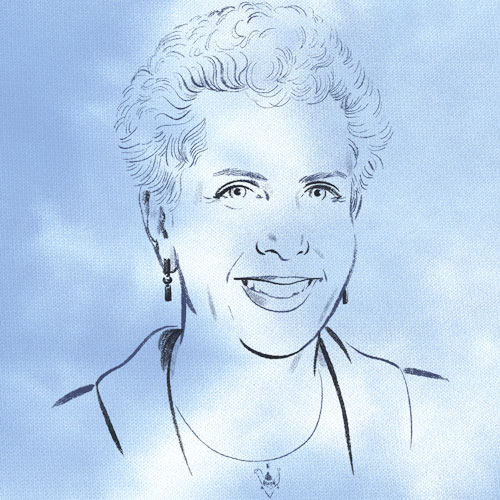
If you ask Karen Nettler ’74 to pinpoint the catalyst that set off her more than 40-year run as an agent of change in the city of Baltimore, she’ll say it’s the moment she signed up for her first psychology course at Lafayette: “I went into college anticipating I was only going to study Spanish. But when I took Intro to Psych, I knew I wanted to work with people.”
After earning a bachelor’s degree in both subjects, as well as a master’s in social work from University of Maryland, Nettler first worked as a constituent service worker for a city council member and then as a program planner in the Baltimore mayor’s office before she was hired to work in the Maryland Governor’s Office for Children and Youth. There, she engaged with groups statewide to develop and implement programs that advocated for local children and youth—providing education and support to those facing issues like child abuse, teen pregnancy, and drug and alcohol use.
In 1989, she was brought on as deputy director at Jewish Community Services, a nonprofit that offers a broad range of programs and resources to address the diverse needs of individuals, families, and communities of all backgrounds in the greater Baltimore region—including career and mental health services, financial management training, and support services for seniors, Holocaust survivors, and individuals with disabilities. A member of the executive management team for 29 years, Nettler most recently served as director of community connections—overseeing the organization’s outreach initiatives, intake services, prevention and wellness programming, and volunteer services.
“I was always passionate about helping and connecting people, and my role allowed me to do that for tens of thousands of people,” Nettler says. Her local efforts earned her the Daniel Thursz Distinguished Jewish Communal Service Award in 2011. The imprint left by her work, however, reached well beyond Baltimore: Beginning in 1995, Nettler spent time helping to establish the first Jewish community services in Odesa, Ukraine, where religious communities were reconstituting themselves following the dissolution of the Soviet Union. “It was a highlight of my career,” she says, “and one of the things I’m most proud of.”
Her Lafayette education also remains one of her greatest points of pride. “It’s the best decision I ever made,” Nettler says, adding that the tight bonds she formed with influential professors like Howard Gallup “made me feel like somebody, not just a number, which was important to my sense of self.” The rigorous courses she took at Lafayette allowed her to place out of courses at the graduate level.
Now retired, Nettler volunteers at a local senior center in Michigan. “The fact that the school was eager to support my vision gave me a sense I could do what I set out to do—and the determination to make an impact.”

After graduating from Lafayette a year early, Jacob got her professional start in operations at Procter & Gamble in 1973. It was during her 18 years at P&G that she became familiar with the theory of constraints—a management philosophy introduced by Eliyahu M. Goldratt—and began to implement it for the company worldwide.
Soon after she became the managing partner, and later partner and CFO, of the Avraham Y. Goldratt Institute, where she created the firm’s strategic direction—including new product and service development, business growth plans, and leadership development—and led that work for more than 21 years. She also designed and taught courses in strategic thinking and supply chain and project management to help companies in the retail, government, technology, pharmaceutical, and biomedical industries, among others, achieve rapid global advancement.
Looking to make a more localized impact, Jacob teamed up with her husband to launch VelosCT LLC—a consulting firm focused on strategic planning, operations, and project management. She later became a co-owner of The Marketplace at Guilford Food Center, of which she also was general manager, until 2020.
Now, as the president of the Shoreline Chamber of Commerce, Jacob employs her decades of experience in management to help businesses and nonprofits flourish on the Connecticut shoreline. She’s been active in local economic growth by mentoring businesses and helping them with marketing and organized events. “I enjoy giving people a sense of pride, and helping them understand that, no matter their role, they are an integral part of making their organization successful,” Jacob says.
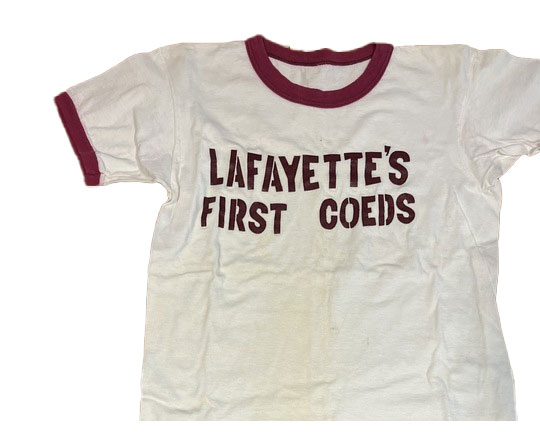
In addition to authoring multiple publications, speaking at national and international conferences, and serving on boards for nonprofits like the Guilford Fund for Education and the Connecticut chapter of the Cystic Fibrosis Foundation, Jacob remains connected to her alma mater through volunteering and philanthropy. She was the first woman to be named president of Lafayette’s Alumni Association, and served as a trustee from 1985 to 1990. A diehard Leopard football fan, Jacob became the first female president of the Maroon Club in the mid ’80s, when she also was treasurer of The Graduates alumni choral group.
“At the College, and in my career and life, I always felt I could walk the path less taken,” says Jacob, who double majored in government and law and philosophy at Lafayette. Being challenged to think on the spot by professors like George Clarke, she explains, allowed her to find and use her voice. “Lafayette gave me the independence to be one of the few, the ability to be uniquely me, and the tools to be successful being uniquely me.”
Empowering the Underrepresented
A legacy of service, advocacy, and educating others.
“I want to continue to change the system to help the people,” says Darlyne Bailey ’74, who has devoted more than 30 years to a career as a leader in higher education, and even longer as a trailblazer in social work and social justice. “The individual is at the heart of it all.”
Bailey is professor emeritus and dean emeritus at the Graduate School of Social Work and Social Research, formerly special assistant to the president for community partnerships, at Bryn Mawr College in Bryn Mawr, Pa. By the early ’80s, Bailey—who majored in psychology with a minor in secondary education at Lafayette—had earned an M.S. in psychiatric social work, along with a Ph.D. in organizational behavior and certificate in psychoanalytic psychotherapy.
She later co-founded a community mental health organization, where she oversaw intake and crisis intervention services. As she witnessed vulnerable populations being barred from accessing quality and effective services, Bailey expanded her focus to include finding systemwide solutions. For example, three months after receiving tenure, Bailey became dean of the Mandel School of Applied Social Sciences at Case Western Reserve University. From 1994 to 2002, Bailey worked on city and federal projects to decrease infant mortality and increase services for public housing residents. In doing so, the Mandel School helped solidify Case Western as a pillar of the greater Cleveland community and beacon for the city’s social justice initiatives.
As vice president of academic affairs and dean, and later acting president of Teacher’s College at Columbia University, Bailey worked to enhance the quality of teaching and bolster teacher-retention rates at local elementary schools. In 2006, she became the first dean at a newly formed multidisciplinary college at University of Minnesota. And since assuming her positions at Bryn Mawr starting in 2009, Bailey has helped to establish the school’s Master of Social Service and Master of Public Health dual degree program and founded its Social Justice Initiative.
Over the decades, she has served on multiple community-based and national nonprofit boards, including Lafayette’s Board of Trustees as an alumni representative. Bailey explains that being on “the margin” herself “allowed me to get in touch with my own identity and passions, empower people, and connect organizations and communities.” Bailey, who grew up in Englewood, N.J.—one of the first cities to desegregate schools—was not only one of the first women at Lafayette, but also one of only nine Black women among the 2,000 students at the College in 1970.
“Every moment of growth and exploration at Lafayette put me on the path to where I am now,” Bailey says. “The intimate environment, the fact you could spend time on the Quad with professors who were incredible human beings, and the way people like Dean David Portlock embraced students and guided us through challenges—they taught me how to be a faculty member who served alongside students to help them discover their best selves.”
Being a first-generation high school graduate and college student emboldened her to achieve even more firsts: “From Lafayette on, I had a sense of courage and humility—I could do whatever I wanted in this world, as long as I did it with love.” Bailey was named a fellow in the W.K. Kellogg Foundation’s National Leadership Program, and received the 2017 National Association of Social Workers (NASW) Social Work Pioneer award and 2021 NASW-PA Phyllis Black Lifetime Achievement Award. In 1994, she became the first woman to receive Lafayette’s George Washington Kidd Class of 1836 Award for distinguished professional achievement.
By establishing the Darlyne Bailey ’74 Excellence in the Humanities and Social Sciences Award—given annually to a Lafayette student who advances understanding of diversity issues—Bailey continues to pay it forward to the College, to which, she says, she owes so much. “The more you give, it comes back to you tenfold. That’s what service and life are all about.”
Alma Scott-Buczak ’74 made a career of impacting others through service, specifically in human resources. Her career began at the Federal Reserve Bank of New York, where she was hired by its economics research department immediately after she graduated from Lafayette. There, she was part of a specialized management training program as both a research and operations analyst. The chance to delve into recruiting for the Fed’s personnel department ignited her passion for HR.
She went on to earn a master’s degree in human resources management in 1987, and later hold HR positions at organizations like Pfizer and New Jersey Transit. Scott-Buczak is a longtime active member of the Society for Human Resource Management, serving in various roles including executive director for the New Jersey State Council. She’s also held leadership roles in nonprofit and civic organizations in Pennsylvania, New York, and New Jersey.
“No matter where I went, I never really left Lafayette,” Scott-Buczak says, explaining that she maintained close ties to the College throughout her early career by serving as an alumni admissions representative, delivering presentations on campus, and being one of the founding members of the McDonogh Network and the Council of Lafayette Women. She also became a member of the Board of Trustees in 2003. “Lafayette changed my life,” says Scott-Buczak, who was a first-generation college student studying economics on a full scholarship. “It gave me an opportunity, and I am indebted for what it’s done for me.”
Scott-Buczak had a full-circle moment when she became associate vice president of human resources at Lafayette in 2016. Over the last eight years, she has diligently worked to help empower employees to come to work every day excited, feeling supported, and wanting to do their best for the organization.
Being one of the first women of color on Lafayette’s campus, Scott-Buczak says, gave her the tools to excel in an unfamiliar environment. “The women of my class were surrounded by men—in my case, white men,” she explains. “There was no space I would be too timid to walk into or didn’t believe I belonged in, and that set me up for success.”
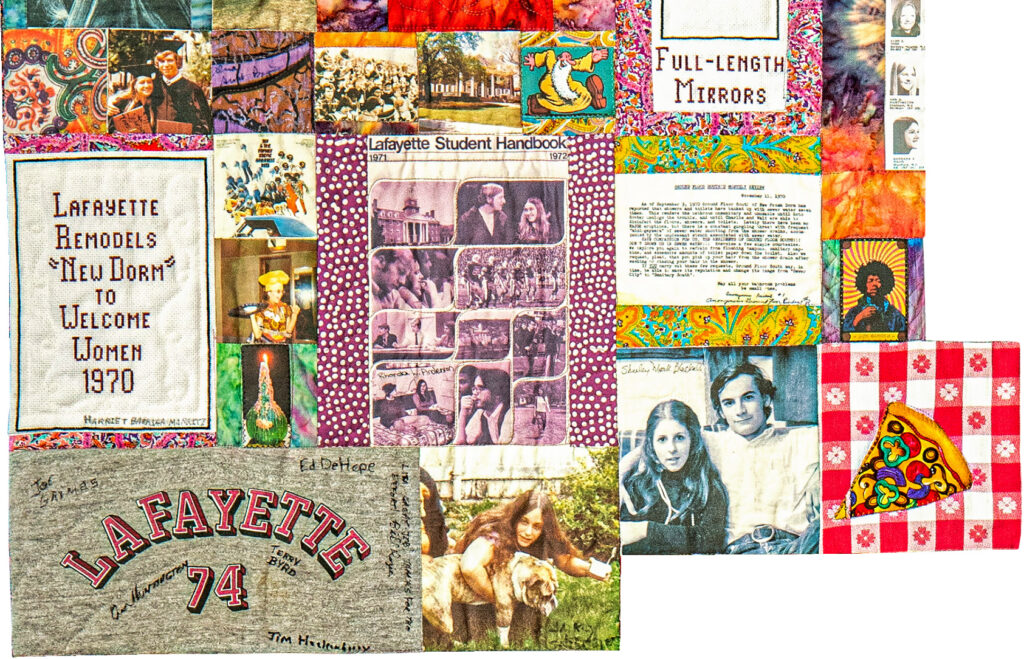
The “New Dorm” for women in 1970 carried the nickname until it was later named Ruef Hall.
Scott-Buczak took every opportunity she could to get involved on campus. In addition to being a resident adviser, she was a McKelvy Scholar and a cheerleader. Professors like Glantz encouraged her to think deeply about issues; advisers like Dean Portlock ensured Black students had the resources they needed; and other Lafayette community members like Dean of Students Herman Kessiah helped her navigate various aspects of college life, like the yearly reapplication process for her scholarship. “They made me realize that Lafayette is a special place that helps every single student, no matter what their needs are. And I wanted to be the same for our employees.”
In 1999, in honor of her parents, Scott-Buczak and her husband established the Georgiabelle and Thomas Harrison Scott Sr. Memorial Scholarship Fund, a scholarship with a preference for students of economically underprivileged backgrounds who are studying in the arts. “Lafayette gave me the gift of an education that provided opportunities I otherwise wouldn’t have had,” she says. “I want to make sure Lafayette can do that for generations of students to come.”
Together Again
The Class of 1974 celebrated its 50th anniversary at Reunion this June. The women who returned to campus were met with a memorable homecoming.

